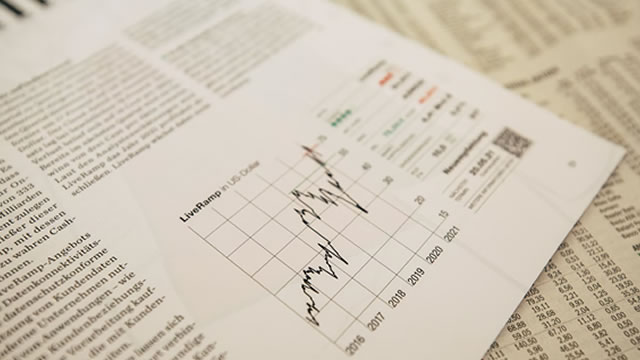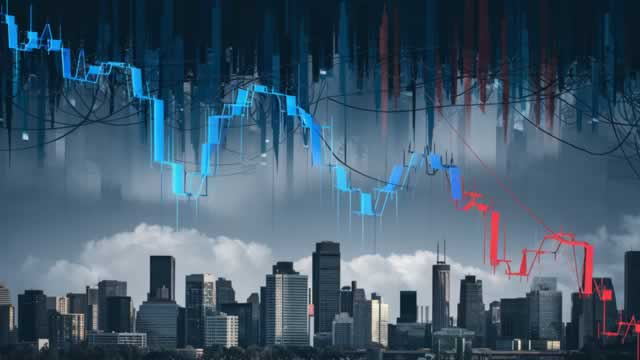Recessionary Whispers: Decoding the Economic Implications of Jamie Dimon’s Warnings
Jamie Dimon, the renowned CEO of JPMorgan Chase, has recently fueled speculations about an impending economic downturn. In his annual shareholder letter, he acknowledged the presence of “recessionary talk” in the financial realm. This talk is not an isolated occurrence but rather a cacophony of macroeconomic factors that have been simmering for a while now.
The Tariff Tangle
One of the most prominent factors contributing to this economic unease is the ongoing tariff war between the US and its trading partners. This trade dispute has resulted in increased costs for various industries, leading to a ripple effect on businesses and consumers alike. The uncertainty surrounding the outcome of these negotiations has added to the volatility of the stock market.
Stock Market Swings
Speaking of the stock market, its volatility is another concern. The S&P 500, for instance, has seen significant fluctuations in recent months. While some view these swings as a normal part of the market cycle, others see them as a harbinger of a potential economic slowdown. The uncertainty surrounding the outcome of various geopolitical events, such as Brexit and the US-China trade war, only amplifies these concerns.
Global Economic Indicators
Apart from these factors, various economic indicators have raised red flags. For example, the yield curve, which is a key indicator of a potential recession, has inverted in some parts of the world. This means that short-term interest rates are higher than long-term ones, which can indicate that investors are less optimistic about the future. Other indicators, such as slowing global growth and rising debt levels, further fuel these concerns.
Personal Implications
So, what does all this mean for the average person? Well, an economic slowdown can lead to various personal implications. For instance, it can result in job losses, reduced wages, and increased prices for goods and services. It can also impact retirement savings, as stock market volatility can lead to significant losses for those invested in the market.
- Job losses: An economic slowdown can lead to layoffs, as companies look to cut costs and remain competitive.
- Reduced wages: In a slowing economy, employers may be less willing to offer wage increases, as they look to maintain profitability.
- Increased prices: As companies face increased costs, they may pass these on to consumers in the form of higher prices.
- Retirement savings: Volatility in the stock market can lead to significant losses for those invested in it, impacting their retirement savings.
Global Implications
On a global scale, an economic slowdown can have far-reaching implications. For instance, it can lead to geopolitical tensions, as countries look to protect their own interests. It can also impact international trade, as countries may look to reduce their dependence on each other. Furthermore, it can lead to social unrest, as people struggle to make ends meet in an uncertain economic climate.
- Geopolitical tensions: An economic slowdown can lead to increased tensions between countries, as they look to protect their own interests.
- Reduced international trade: In a slowing economy, countries may look to reduce their dependence on each other, leading to a reduction in international trade.
- Social unrest: An economic slowdown can lead to social unrest, as people struggle to make ends meet in an uncertain economic climate.
Conclusion
In conclusion, the economic whispers of a potential recession are growing louder, with factors such as tariffs, stock market volatility, and various economic indicators contributing to these concerns. These concerns have personal and global implications, with potential job losses, reduced wages, increased prices, and retirement savings being impacted at the personal level, and geopolitical tensions, reduced international trade, and social unrest being impacted at the global level. It is important for individuals and governments alike to remain vigilant and prepared for these potential economic challenges.
As Jamie Dimon and other financial experts caution us, it is essential that we take these warnings seriously and begin to prepare for the potential economic slowdown. This may involve diversifying investments, building up emergency funds, and looking for opportunities to reduce debt and increase savings.
In the words of the wise Mr. Dimon, “it’s always darkest before the dawn.” But it is better to be safe than sorry, and by being prepared, we can weather any economic storm that comes our way.





